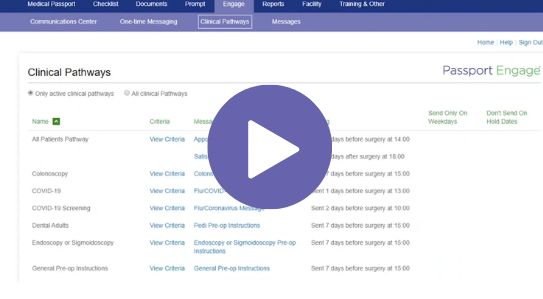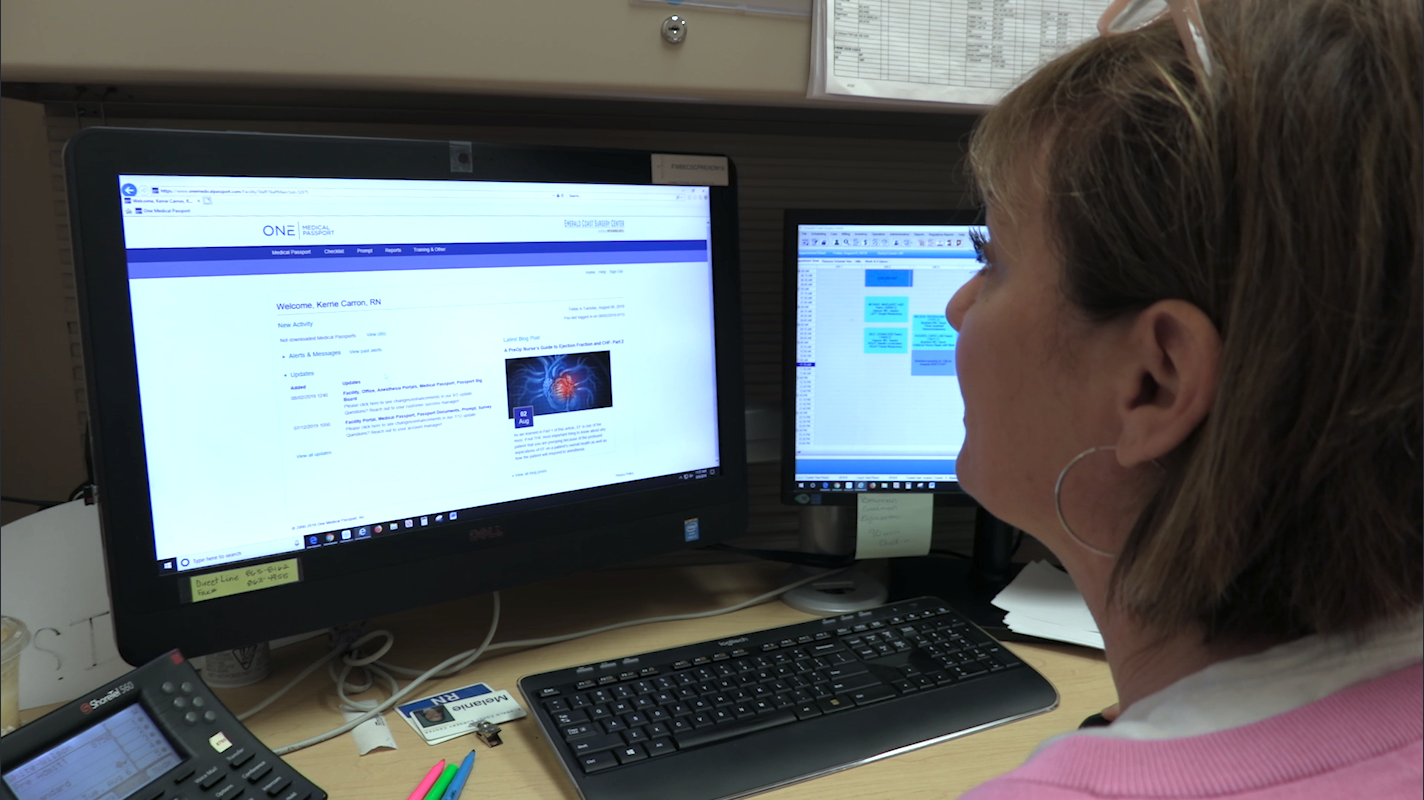More and more, hospital systems and private entities are exploring ventures into the ASC market. Here’s what you can do to successfully navigate and flourish under an ownership change.
Want to stay in the know on the latest ASC tips and topics?
Recent Posts
Looking for Something?
Categories
- ASC (82)
- ambulatory surgery center (82)
- video (36)
- nurse guide (29)
- patient communication (27)
- patient satisfaction (27)
- covid19 (26)
- surgical facility (25)
- business and finance (22)
- technology (22)
- patient engagement (19)
- ambulatory software (18)
- pre-admissions (16)
- Case Study (14)
- ambulatory surgery center software (11)
- outpatient surgery (11)
- culture of safety (10)
- complex cases (8)
- or volume (8)
- administrator (7)
- employee satisfaction (7)
- infection control (7)
- outpatient surgery software (7)
- risk management (7)
- solutions (7)
- cardiac (6)
- disinfect (6)
- patient tracking (6)
- postop (6)
- total joint (6)
- document management (5)
- implementation (5)
- patient survey (5)
- surgery scheduling (5)
- ASC Everyday Heroes (4)
- hiring (4)
- job security (4)
- payment plan (4)
- preop (4)
- scheduling (4)
- security (4)
- surgery center (4)
- women in healthcare (4)
- ASC booking (3)
- CMS (3)
- CMS requirements (3)
- Derek's Corner (3)
- best practices (3)
- data integration (3)
- everyday heroes (3)
- outpatient surgery center (3)
- patient registration (3)
- preop nurse (3)
- revenue (3)
- senior patients (3)
- specialty procedures (3)
- texting (3)
- vendor management (3)
- ASC quality reporting (2)
- Accreditation (2)
- GI (2)
- ambulatory surgery center surveys (2)
- burnout (2)
- cancellations (2)
- clinical (2)
- cost (2)
- digital chart storage (2)
- healthcare consumerism (2)
- hygiene (2)
- new hire (2)
- patient charts (2)
- patient risk (2)
- payments (2)
- screening (2)
- sleep study (2)
- time management (2)
- 2021 (1)
- 4 tips (1)
- Accredited (1)
- Billing (1)
- ERAS (1)
- One Mnet Health (1)
- SaaS (1)
- capnography (1)
- certfication (1)
- colonoscopy (1)
- conscious sedation (1)
- corona virus (1)
- customer spotlight (1)
- diagnosis (1)
- elderly patients (1)
- endo (1)
- intubation (1)
- laryngoscopy (1)
- marketing (1)
- obesity (1)
- online pre-admissions (1)
- outsourcing (1)
- patient (1)
- patient finance (1)
- patient satifaction (1)
- payment (1)
- personalized care (1)
- physician offices (1)
- pricing (1)
- recovery (1)
- sleep apnea (1)
- staff burden (1)
- staffing shortage (1)
- surgery center management software (1)
- top 12 (1)
- vendor communication (1)
- vendors (1)
As we previously discussed, accreditation guidelines are there to help your ASC improve quality, safety, and efficiency. However, staying on top of certifications can be time-consuming. Some specific digital solutions can help.
Anyone reading this has been hired to do a job, has hired others, or both. It is soooo expensive to find the right person, with the right skills, and the right fit for the position and your company culture. If you are the person hiring someone, typically all you have available to you is his or her resume for screening. Then after you identify half a dozen (if you are lucky) you have the process of screening them via a phone interview and then an on-site interview. Tedious, time consuming, and expensive! And...if you are the person looking to be hired, it is sometimes the roll of the dice if you will get the attention of the hiring manager.
Starting IVs is a crucial part of being an excellent ambulatory care nurse. While painless IV cannulations can be a challenging skill to master, they are vital to your patient’s recovery. Here’s our 5 steps to starting an IV for new nurses (or nurses who need a refresher):
Two thousand twenty.
In the ambulatory surgical setting, nurses are forced to wear a lot of hats. They are not only the nurse, but may be a respiratory therapist, secretary, physician liaison for physician office referrals, educator, physical therapist, housekeeping, infection control, quality coordinator, and any other role necessary to deliver exceptional care to the patient. With limited budget and resources, surgical facilities are still expected to maintain infection control and quality assurance (QA) programs to ensure patients are receiving the safest care. The Joint Commission requires QA programs to cover Infection Control, Performance Improvement efforts, and the Culture of Safety within the ASC. In Texas, the Department of Health (TDH) wants all transfers, emergency department admissions, hospitalizations, and patients returned to surgery to be included in reporting requirements.
Nurses at every level of the care continuum must be leaders. Showing leadership doesn’t only help your department run smoothly, but it also improves communication and patient outcomes. This post explores four strategies every nurse can use to can show leadership qualities—no matter your title.











